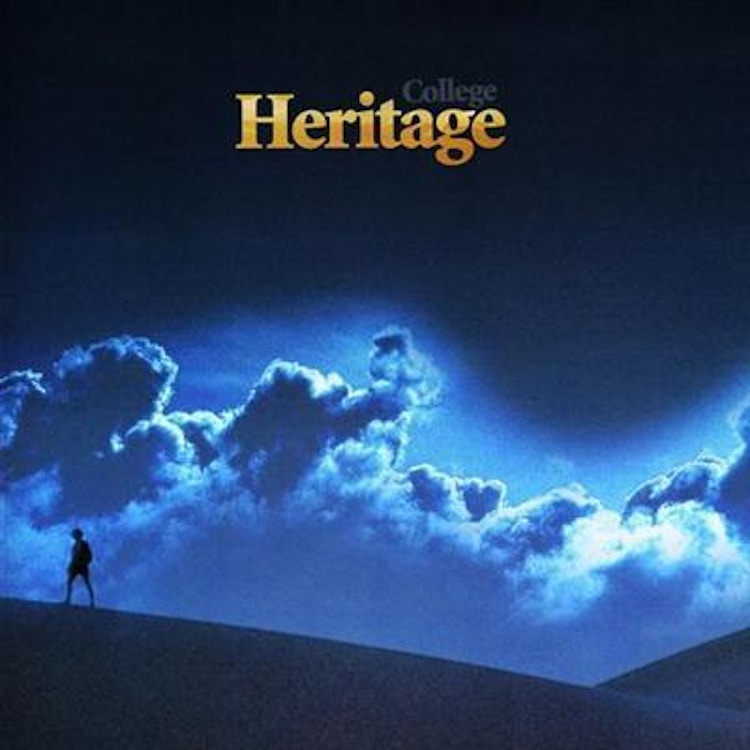"Heritage"

Those of you who have seen, and subsequently enjoyed, the sleek minimalism of Cimmerian heist film Drive (which utilized College’s ‘A Real Hero’ on its soundtrack) understand the importance of aesthetic; an overarching sound and direction, certainly not a given in musical endeavours can destroy or buttress an album. David Grellier demonstrates an auteur’s sense of style on Heritage; the French electronic musician and Valerie Collective founder draws on a variety of inspirations to fashion his oeuvre, most notably light, urban landscapes, and the 1980s, and the end result is a sound, all cold and lush and fuchsia and black, of neon noir.
In an interview with What’s on the Hi-Fi?, Grellier laid out a litany of influences for College–the “emotions of my childhood,” “80′s soaps,” “images of Los Angeles, Chicago, and all the other cities that I discovered through my television”–any and all of which are apparent here. Heritage has motion, but it is akin to the slow, majestic sweep of cities, burning and winking, draped in incandescent ribbons and flecked with stars in the night, viewed from on high. There is a Gallic chic here, a sense of slight detachment brought about by the distinctly artificial music creating legitimately organic atmospheres, quiet and sexy, powered by low pulsing throbs and light brushes of fingertips across drum pads. Grellier’s adroit sense of pace keeps Heritage moving; even sans vocals, there is always enough action–synth hooks sliding in, rasping drums coughing out–to avoid ennui, maintaining the tension which drives the album.
Much like in adolescence, a sense of anxiety creeps in amongst the concupiscent and urban/urbane; Grellier occasionally breaks up the burghal ambience, as in ‘Tempete Magnetique,’ where the chilly thump feels hurried and horror-tinged synths crawl like crystalline spiders from the periphery; ‘Piege’ is less subtle, a dark, velvety angst that builds terribly to nothing (one can make their own youth tinged sexual/psychological analysis).
Slightly foreboding cuts aside, the majority of Heritage seems more focused on Grellier’s admitted fascinations with the 1980s and metropolises; the eponymous track sounds like viewing a Patrick Nagel print barred by headlights through venetian blinds, while ‘Les Automates’ has an artificial breeziness that seems best suited for 4 am outer loop highways and cocaine. ‘Une Ville Silencieuse’ is borderline haunting, evoking images of saffron street lights reflected off of snow, while ‘Un Long Sommeil’ slowly smolders. Every track carries an irrevocable and enviable sense of mood, as if they could bathe anywhere instantly in eventide, even cuts so seemingly superficial as ‘Alter Ego,’ which seems an in media res soundtrack to a video game one has happened upon with a free play intact; the strong, unified sense of direction makes Heritage best enjoyed en masse, each cut arriving and leaving.
Beautiful and with a hint of danger, Heritage is approachable and voguish, a slice of neon noir as atmospheric as it is sleek, and a testament to Grellier’s formidable world-scoring talents.
Get the Best Fit take on the week in music direct to your inbox every Friday

Bon Iver
SABLE, fABLE

Mamalarky
Hex Key

Florist
Jellywish





